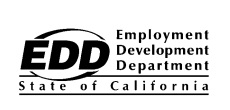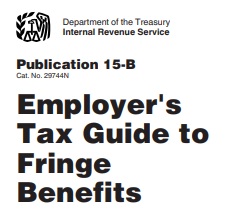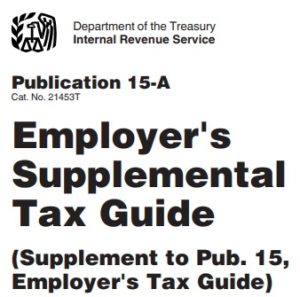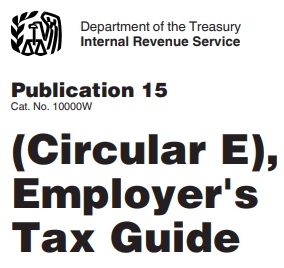Employee or 1099 California Independent Contractor?
AB 5
Introduction
It’s gotten very confusing who is a 1099 independent contractor or a w-2 employee. Check out all the materials, tools, links, video’s and pamphlets below and to the right.
California AB 5 which put into law the decisions of the Dynamex Operations West Inc. v. Superior Court pretty much made everyone an employee w-2.
In general, w-2 employees would be on the Employers DE 9 and can enroll in the Employer’s Group Health Plan – Get Quotes. 1099 independent contractors usually can’t get on the group health plan1099 ers could enroll in an individual plan and may be able to write it off as a self employed biz owner, Schedule 1 – Schedule C.
#Dynamex Operations West Inc. v. Superior Court
Three-point criteria.
In a California Supreme Court ruling, the presumption is that everyone is an employee. The hiring entity can be exempt from treating the person as an employee if they met this three-point test:
1) Is free from the control and direction of the hirer in connection with the performance of the work, both under the contract for the performance of the work and in fact; and
2) performs work that is outside the usual course of the hiring entity’s business; and
3) is customarily engaged in an independently established trade, occupation, or business of the same nature as that involved in the work performed.
- Actual 85 page ruling
- Now Codified under AB 5 Wikipedia * Text of Law *
Group Health Insurance Rules
- Participation & Premium Contribution Requirements
- EmployEE Definition CA Health Care Reform
Misc.
- ERISA Definition 29 USC 1002 (6) The term “employee” means any individual employed by an employer.
- Social Security Definitions
- Recent Tax Court Ruling May 2016
- Extent Of Health Coverage Gains From California Gig Worker Law Uncertain California Health Line 10.3.2019
- Uber driver died of COVID-19. Proposition 22 will sway his family’s fate LA Times 11.1.2020 *
- Verify work eligibility
My #CPAs Summary
AB 5
The bill, which became law on January 1, 2020, codified and expanded a California Supreme Court ruling dictating that virtually anyone working for your company except specifically excluded professions is a W-2 employee. These employees include ever-escalating minimum wages, egregious unemployment and worker compensation costs. The California state government continues to intensify their micromanaging of California businesses. Read more
- Proposition 22 to negate AB 5
- California Government’s Total Control Over Employers 2.9.2020
- Newsletter on 1099 vs employee 12.19.2019
2017
1099’s are used by federal and state governments as third-party verification of income needed to be recognized by the recipient. Clients ask all the time whether they need to recognize the income if they do not receive a 1099. The answer is Yes. The government just uses the 1099’s to keep you honest There can be severe penalties for not filing required 1099’s. Recently a client was audited by the state of California. Though they did file 1099’s, they did not file all the ones required. The state assessed them over $6,000 (10% of the amount that was to appear on the 1099’s). The federal government also has a penalty.
So here is a primer on the requirements:
The IRS has begun focusing heavily on taxpayer compliance with information reporting laws. Generally any person, including a corporation, partnership, individual, estate, and trust, who makes reportable transactions during the calendar year, must file information returns to report those transactions to the IRS. Persons required to file information returns to the IRS must also furnish statements to the recipients of the income. To properly report the information required on Form 1099, you need to have the provider’s taxpayer identification number (TIN). We suggest you request that the provider fill out and give you a Form W-9, (Request for Taxpayer Identification Number and Certification), before work is done or payments are made. If a provider does not supply you with a taxpayer identification number, you are generally required to “backup withhold” 28 percent from any “reportable payments.” You must file Form 1099-MISC, Miscellaneous Income, for each person to whom you paid during the year: At least $600 in rents, services (including parts and materials), and other income payments. You must report payments on Form 1099-MISC only when the payments are made in the course of your trade or business. Personal payments are not reportable. Some payments are not required to be reported on Form 1099-MISC, although they may be taxable to the recipient.
Payments for which you are not required to file a Form 1099-MISC include:
(1) generally payments to a corporation; (Payments for Attorney Fees must be reported on form 1099 whether or not the attorney is incorporated)
(2) payments for merchandise, telegrams, telephone, freight, storage, and similar items;
(3) wages paid to employees (these must be reported on Form W-2, Wage and Tax Statement);
If you fail to provide Form 1099 and cannot show reasonable cause for the failure, you may be subject to a penalty. The penalty applies if you fail to provide the statement by the deadline, fail to include all information required to be shown on the statement, or include incorrect information on the statement. The penalty is up to $260 per individual 1099 not filed on a timely basis. You may also lose the deduction for the payment if you do not file a timely 1099. If you have any questions about how this affects you or your business, please contact me. Though I do not prepare 1099’s, I can get you someone to do such if you have not already done so. They are now due on January 31st to the government.
Love and Kisses, Your Devoted CPA Bruce L. Bialosky, 9301 Wilshire Blvd., Suite 605, Beverly Hills, CA 90210 bruce —- bialosky.biz BIALOSKY NEWSLETTER January 17, 2017
*****************************************
BIALOSKY NEWSLETTER – January 11, 2022
1099’s FILING REQUIREMENTS
Dear Steve,
1099’s are used by federal and state governments as third-party verification of income needed to be recognized by the recipient. Clients regularly ask whether they need to recognize the income if they do not receive a 1099. The answer is Yes. The government just uses the 1099’s to keep you honest; third party verification.
There can be severe penalties for not filing required 1099’s. You heard stories of clients that have not followed the guidance and did not properly file their 1099’s then were slammed with major penalties. Once either the state or Feds get you, the other one will come around and slap you again.
So here is a primer on the requirements:
Both the IRS and the California Employment Development Department (EDD) are focusing on 1099’s for two reasons.
1. That the forms are properly filed.
2. That the people receiving the 1099’s are truly independent contractors and not W-2 employees.
Who Must File 1099’s – Generally any person, including a corporation, partnership, individual, estate and/or trust, who makes reportable transactions during the calendar year must file information returns to report those transactions to the IRS. Persons required to file information returns to the IRS must also furnish statements to the recipients of the income.
How to Get Proper Info – To properly report the information required on Form 1099, you need to have the provider’s taxpayer identification number (TIN). We suggest you request that the provider fill out and give you a Form W-9 (Request for Taxpayer Identification Number and Certification) before work is done or payments are made. If a provider does not supply you with a taxpayer identification number, you are generally required to “backup withhold” 28 percent from any “reportable payments.”
NEW FOR 2021 – ALL NON-EMPLOYEE COMPENSATION WILL RECEIVE A NEW FORM 1099-NEC. PLEASE MAKE SURE YOU ARE ISSUING THE CORRECT 1099 FORM.
At least $600 in rents, services (including parts and materials), and other income payments. 1099-NEC.
You must report payments on Form 1099 only when the payments are made in the course of your trade or business. Personal payments are not reportable.
Some payments are not required to be reported on Form 1099, although they may be taxable to the recipient. Payments for which you are not required to file a Form 1099 include:
(1) generally payments to a corporation; (Payments for Attorney Fees must be reported on form 1099-MISC whether or not the attorney is incorporated);
(2) payments for merchandise, telegrams, telephone, freight, storage, and similar items; and,
(3) wages paid to employees (these must be reported on Form W-2, Wage and Tax Statement).
What Happens if You Don’t File – If you fail to provide Form 1099 and cannot show reasonable cause for the failure, you may be subject to a penalty. The penalty applies if you fail to provide the statement by the deadline, fail to include all information required to be shown on the statement, or include incorrect information on the statement. The penalty is up to $260 per individual 1099 not filed on a timely basis. You may also lose the deduction for the payment if you do not file a timely 1099.
If you have any questions about how this affects you or your business, please contact me. Though I do not prepare 1099’s, I can get you someone who can if you have not already done so. They are now due on January 31st to the government..
Love and Kisses,
Your Devoted CPA
California Resources
- How to report 1099 Income for Covered CA MAGI calculations & subsidies
- CA EDD DE #38 13 Questions for Determination Revised January 2016 – out of date?
- EDD Guide DE 44 see Page 8
- Worker’s Compensation Rules – CA Department of Industrial Relations Common Misconceptions
- EDD Pamphlet DE 573 m Pre Dynamex Case out of date?
- Labor Code 3353
- IRS Website — Independent Contractor – Self Employed – Employee
- SS8 Form – Determine Worker’s Status for Federal Employement taxes & Income tax withholding
- Publication 15 A Employer’s supplemental Tax Guide
- IRS SS-8 Worksheet to determine status
- My CPA’s warnings about what happens if you don’t file the 1099 properly
- Willful misclassification SB 459 1/1/2012 Commentary by our CPA
- Nolo Contract With Independent Contractor How to Safely & Legally Hire Independent Contractors
- IRS 20 factors
- DON’T BLAME truck drivers in the cargo backups at ports; blame shipping companies that misclassify drivers as independent contractors LA Times 2.16.2022
#Common Law Rules
Facts that provide evidence of the degree of control and independence fall into three categories:
- Behavioral: Does the company control or have the right to control what the worker does and how the worker does his or her job?
- Financial: Are the business aspects of the worker’s job controlled by the payer? (these include things like how worker is paid, whether expenses are reimbursed, who provides tools/supplies, etc.)
- Type of Relationship: Are there written contracts or employee type benefits (i.e. pension plan, insurance, vacation pay, etc.)? Will the relationship continue and is the work performed a key aspect of the business?
Businesses must weigh all these factors when determining whether a worker is an employee or independent contractor. Some factors may indicate that the worker is an employee, while other factors indicate that the worker is an independent contractor. There is no “magic” or set number of factors that “makes” the worker an employee or an independent contractor, and no one factor stands alone in making this determination. Also, factors which are relevant in one situation may not be relevant in another.
The keys are to look at the entire relationship, consider the degree or extent of the right to direct and control, and finally, to document each of the factors used in coming up with the determination. IRS.gov *
What’s this about #Uber /Lyft drivers getting 82% of the average Bronze premium from Uber/Lyft so that they can enroll in Covered CA?
Uber/Life will qualified drivers a stipend of 82% of the average Bronze premium, drivers would need to work an average of 37.5 hours per week for a single company in order to receive the full stipend.
Covered CA Power Point Power Point on it. Pdf
Covered California plans are typically less generous than the policies employees usually get through work, she said. And bronze-level plans, which have the lowest monthly premiums, also have the highest out-of-pocket costs for medical services.
Consider the deductible, which is how much a person needs to pay out-of-pocket before insurance starts paying for care.
Depending on their incomes and other factors, drivers may also be eligible for tax credits and state and federal subsidies to help them afford plans on the individual market.
The subsidy will count as MAGI income if you want Covered CA subsidies, per Covered CA powerpoint cited above
- CA Health Line
- Sacramento Bee Explanation
- Limited Information on Covered CA Website
- InsureMeKevin.com explanation
- LA Times Opinion Michael Hiltzik Uber took drivers for a ride with Proposition 22
- Get instant Quote & Subsidy Calculation
- FAQ Medicare Stipend?
Yes, They Are W-2 Employees
The world of running a business in California has changed radically. The days of any discretion in treating someone as an independent contractor are gone. To quote an employment law attorney “unless they are your plumber, if you pay someone for services, they are your W-2 employee”. The State of California has taken an absolutist draconian approach to this. As is usual with the State of California fines and penalties for disregarding these provisions will be disproportionately painful.
In 2018 the California Supreme Court made a ruling that completely changed how to determine whether someone is an independent contractor. The ruling established a three-point test to determine if someone qualifies as an independent contractor. The person must pass ALL three tests:
1. The worker is free from the control and direction of the hirer in connection with the performance of the work, both factually and under contract for the work.
2. The worker performs work that is outside the usual course of the hiring entity’s business.
3. The worker is customarily engaged in an independently established trade, occupation or business of the same nature as the work performed for the hiring entity.
The last test is very important. For example: if you are in the business of computer programming and someone works for you who is a programmer remotely and has never set foot in your office, they are still an employee. Where the work is performed, and the number of hours worked, unless very minor, are not relevant to the determination as to whether someone is an employee.
Following up on this the California legislature passed and the governor signed AB5. This is a bill which made these rules part of the employment law code of California. Many other states have or will be following suit.
The law tied together the various employment related rules, including worker’s compensation and unemployment insurance. This means that if someone who works for you is determined to be an employee, not an independent contractor, the business will be liable for those costs in addition to payroll and income taxes. Other states are adopting them because they bring in more revenue.
AB5 does exempt certain professions from the new rules and throws them back to being tested by the old rules. Except for real estate salespeople and individuals who repossess property all exempt occupations must pass the old rules which are referred to as the Borello rules coming from a state court case. I will not go into all those points here because we have all lived with them for ages. There are eleven points and they don’t all need to be met. It is a preponderance of facts from the eleven points.
If you are dealing with one of these exempt professions it is very likely that the tax agencies will be looking more closely at the Bordello tests to make sure that you are complying. It is not an exaggeration to state that if you are audited on this issue you are guilty until proven innocent in the eyes of the employment tax authorities.
Insiders have stated the reason that the following exemptions exist is that they were necessary to get the bill passed. Rhyme, reason, or any other practical considerations were insignificant or non-existent. The exemptions are:
1. Physicians, surgeons, dentists, podiatrists, psychologists, veterinarians
2. Insurance brokers
3. Lawyers
4. Architects and engineers
5. Licensed Certified Public Accountants
6. Registered securities broker-dealers and investment advisers
7. Direct sales salespeople (must not be paid by the hour and must have a written independent contractor agreement). Note: this covers companies like Avon.
Workers in these categories must have all required professional or occupational licenses. For example, a Certified Public Accountant with an inactive license would not qualify.
Then there is another group that may qualify for exemption from the draconian three-step rules. These professional services must meet six additional tests to be exempt:
1. Maintain a business location separate from the hiring firm – this may include their personal residence.
2. Have a business license, in addition to a professional license or permits.\
3. Be able to set their own rate for the service performed.
4. Be able to set their own hours.
5. Be customarily engaged in the same type of work under contract with another hiring firm or hold themselves out to other potential customers to perform the services.
6. Customarily and regularly exercise discretion and independent judgment performing their services.
To protect yourself you will need to get a signed W-9 Request for Taxpayer ID # and Certification and a copy of their business license BEFORE you pay them. It is advisable to check they are licensed for their profession on the government’s website for the service or certainly obtain their license number or a copy of the license. Obtaining a list of some of their other customers is advisable.
Here is a list of professions falling into this category:
1. Marketing professionals (providing the contracted work is original and creative)
2. Travel agents
3. Human Resource Administrators (provided the contracted work is predominantly intellectual and varied in character)
4. Graphic Designers
5. Fine Artists
6. Enrolled Agents
7. Payment processing agents through independent sales organizations
8. Photographers or photojournalists who license their license their work no more than 35 times a yar to hiring firm.
9. Freelance writers, editors or cartoonists who provide content no more than 35 times a year to a hiring form.
10. Licensed barbers, manicurists, electrologists, cosmetologists and estheticians, if they meet a series of other tests not delineated here.
Real estate agents and brokers and construction sub-contractors are exempt if they have active licensees.
Do not look for logic or fairness in this. It is illogical, unfair, draconian and a huge burden on business. Considerations that are so unimportant in Sacramento as to be effectively nonexistent.
Hiring an out-of-state independent contractor is not necessarily a solution. The recent Bindley decision of the California Office of Tax Appeals requires out-of-state sole proprietors to pay California tax on their income. Physical presence in California is no longer required for a service provider to be taxed in California. This decision may subject these contractors to California employment rules.
If you have questions about these rules you really need to consult an employment law attorney.
Just to put some unneeded icing on the cake it has been made that certified public accountants are not covered for liability in advising clients on issues relating to employment status.
At the risk of shocking you, attorneys are exempt from the provisions relating to liability relating to advising regarding employment status.
I caution you in the strongest terms, that ignoring these rules will result in needless significant liability and financial hardship. This is a cash cow that California fully intends to vigorously milk.
This is for information only.
AB 5 Video How will it impact independent contractors in California?
10.7.2019
IRS Website on 1099 vs Employee
- In CA Dynamex and AB 5 Control!
- California Industrial Relations – Contractor vs Employee
- IRS Publication 1779 Independent Contractor or Employee Rev 3.2022
- Tax Topic 762 Independent Contractor vs Employee
- Trump Rule withdrawn – Broader analysis allowed
- Our Webpage on Schedule C – Self Employment – Profit or Loss from Business
- Judge Reinstates Trump Independent Contractor Rule Withdrawn by Biden Insurance Journal 3.23.2022
- Los Angeles Times Employee or Contractor 2.23.2019
- Vote nearing Los Angeles Times
- New California labor law AB 5 is already changing how businesses treat workers Los Angeles Times 2.14.2020
- 1099 Misc Form
EDD California 2024 Employers Guide #DE44 

- Forms & Publications EDD
- FORMS REQUIRED TO GIVE NEW EMPLOYEES
- More workplace protections in 2022 New laws will shield employee health, safety and wages, but some ‘job killer’ bills were axed Los Angeles Times
- Social Security Forms
New Federal Reporting Requirement for Beneficial Ownership Information (BOI)
- Effective January 1, 2024, many companies in the United States must report information about their beneficial owners—the individuals who ultimately own or control the company—to the Financial Crimes Enforcement Network (FinCEN), a bureau of the U.S. Department of the Treasury.
- In 2021, Congress enacted the bipartisan Corporate Transparency Act to curb illicit finance. This law requires many companies doing business in the United States to report information about who ultimately owns or controls them.
- Your company may need to report information about its beneficial owners if it is:
- 1. a corporation, a limited liability company (LLC), or was otherwise created in the United States by filing a document with a secretary of state or any similar office under the law of a state or Indian tribe; or
- 2. a foreign company and was registered to do business in any U.S. state or Indian tribe by such a filing.
- FinCEN’s Small Entity Compliance Guide includes checklists for each of the 23 exemptions that may help determine whether your company qualifies for an exemption.
- My CPA's Opinion - this is OVERKILL
All our plans are Guaranteed Issue with No Pre X Clause
Quote & Subsidy #Calculation
There is No charge for our complementary services
Watch our 10 minute VIDEO
that explains everything about getting a quote
- Our Quote Engine Takes all the complexity out of using pencil and paper to figure out the premiums per the Obamacare/ACA rules under CFR §1.36B-3 *
- Get more detail on the Individual & Family Carriers available in CA









https://www.latimes.com/opinion/story/2022-09-05/remote-work-hours-health-cost-overtime-labor-movement